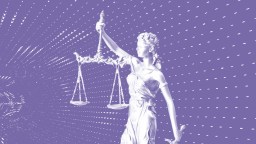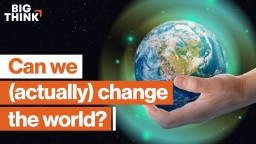society
Technology of the future is shaped by the questions we ask and the ethical decisions we make today.
▸
5 min
—
with
The debate over whether or not there is a place for political correctness in modern society is not always black and white.
▸
13 min
—
with
Pandemics have historically given way to social revolution. What will the post-COVID revolution be?
From baboon hierarchies to the mind-gut connection, the path to defeating depression starts with understanding its causes.
▸
23 min
—
with
The study found that people who spoke the same language tended to be more closely related despite living far apart.
New research from MIT is unintuitive but could lead to a better system.
Older people are in grave danger of being left behind.
This map of Europe’s 20 most populous islands holds a few surprises and unlocks a truckload of trivia.
The idea behind the law was simple: make it more difficult for online sex traffickers to find victims.
Answering the question of who you are is not an easy task. Let’s unpack what culture, philosophy, and neuroscience have to say.
▸
12 min
—
with
The AI constitution can mean the difference between war and peace—or total extinction.
▸
5 min
—
with
For centuries, universities have advanced humanity toward truth. Professor Jonathan Haidt speaks to why college campuses are suddenly heading in the opposite direction.
Want to tell someone’s future in the US? You don’t need a crystal ball, just their zip code.
The author of “Auroville: The City Made of Dreams” talks about the difficulties of establishing (and writing about) utopian societies.
Research from MIT’s School Effectiveness & Inequality Initiative found making college more affordable cut dropout rates and boosted degree attainment.
A deeper appreciation for science and less unnecessary spending could be in our future.
As morally sturdy as we may feel, it turns out that humans are natural hypocrites when it comes to passing moral judgment.
▸
5 min
—
with
For a purely binary choice, wearing a ring either on the left or right hand can say a lot about the wearer.
Scientists ripped up kids’ drawings. This is what they learned about relationships.
▸
5 min
—
with
Monogamy is often considered a key component of traditional marriages, but it’s only half the story.
▸
8 min
—
with
What is human dignity? Here’s a primer, told through 200 years of great essays, lectures, and novels.
We have the money to change the world. What’s standing in the way?
▸
4 min
—
with
Historian Rutger Bregman argues that the persistent theory that most people are monsters is just wrong.
▸
6 min
—
with
Experts plead with Americans to keep gatherings limited this Thanksgiving, while families devise new ways to celebrate the holidays.
Christmas was banned in 1647 and rebellions broke out across the country.
The more you like, follow and share, the faster you find yourself moving in that political direction.
Turns out gender assumptions have been going on for quite some time.
The color of toys has a much deeper effect on children than some parents may realize.
▸
6 min
—
with
When we limit the clash of ideas, we ultimately hinder progress for the entire society.
Partisan division has reached its peak, shows an alarming new study that identifies three crucial components.





























